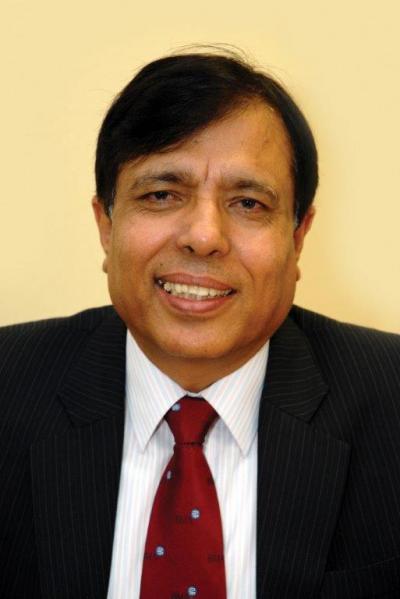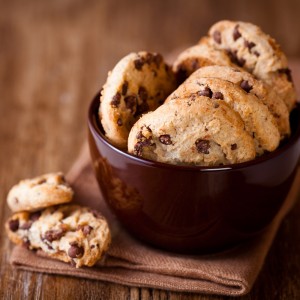Home » Labour Health Policy
Andy Burnham at the Fabian Society explaining a need for ‘whole person care’
Andy Burnham MP was invited to speak at an event called ‘Together’ on the subject of his Fabians pamphlet of the same name. This video was taken at the Labour Party Conference 2014.
Here he gives a vigorous defence of the proposed policy, not unique to this jurisdiction, on ‘whole person care’. In England, however, it will mean the formation of a National and Health Care Service. It therefore has profound policy implications.
Burnham announces plans to implement a National Health and Care Service over ten years
The Shadow of Secretary of State for Health, Andy Burnham MP, says that he has tried to produce an answer ‘which people can believe in, and which people can buy into’.
This is particularly timely, as it is well known that Labour intend to make the NHS a major general election issue next year.
The Conservatives and Liberal Democrats are now deeply unpopular over their management of the NHS, as evidenced, for example, by the campaigners who converged on Trafalgar Square recently on behalf of the “Darlo Mums”.
Over successive governments and most recently, the finances of social care have suffered massively.
Speaking at a fringe event for the Fabian Society in Manchester yesterday, Burnham felt that things are not satisfactory as the response to an ageing society has been through a medical model.
Burnham’s problem is that he is about to be bequeathed a fragmented illness service, not a national health service; and that the system is patient-focused on ill people not person-focused on people through health and illness. Burnham feels that focusing on people will enable a greater focus on friends and families too.
Burnham feels that the “ever-increasing hospitalisation” of an ill ageing population will not work, and that hospitals are becoming increasingly dysfunction all the year round due to a social care system which has been malnourished over successive governments.
“This failure piles pressure on the acute system”.
Burnham further adds that people “are battling in caring for people with complex needs”, and that “these silos are not ones which can afford any more”.
This policy is anticipated to bring in housing, education, and leisure strands in due course.
But the urgency for Burnham is to deal with people having to avoid recounting their personal stories repeatedly to different people; and that professionals are often making clinical decisions on the basis of incomplete information.
The intention is, ultimately, to bring together systems for physical health, mental health and care. Sir John Oldham had earlier in the fringe event observed that the general public can have a poor understanding of the word “social” in relation to ‘social care’.
Burnham intends to set out a ten year plan for a whole person care, fully accepting the findings of the Oldham Commission, and which “endorses” the findings of the Barker Commission from the King’s Fund.
Such a plan will be strongly attractive to those vociferous critics, such as Sir David Nicholson the immediate predecessor of Simon Stevens as the CEO of NHS England, that health policy has traditionally been adopted on the basis of the electoral cycle.
This system will be a “National Health and Care Service”, which will realign an activity-based tariff for episodes of illness to produce a single ‘year of care’ budget for each person covering his or her physical, mental or social meeds. This, Burnham feels, will support prevention and wellbeing.
At first the idea was to have a pooled integrated budget across health and care, but, in the subsequent question/answer session, Burnham made extremely clear that he was mindful of the need to move away from privatised fragmented care; and to move away from compulsory personal health budgets which had not been proven to work well.
Burnham, instead, signposted plans to be announced later this week that he would instead advocate a general ‘rights based approach’, where citizens could be given realistic expectations of the development of personal care plans according to their needs.
Burnham emphasised that he remained unconvinced that personal budgets were the sole instrument that could achieve this aim.
He is of course extremely mindful of the public’s overwhelming lack of appetite for the marketisation, outsourcing or privatisation of the NHS.
As an example of ‘market failure’, Burnham cites how councils in their wish to compete to keep council tax bills low end up failing on high quality care.
Interestingly, he also feels that this plan has the potential to be ‘radical’, allowing people can be supported to care, enabling full personalisation.
Such a system will involve a “care coordinator”. This has already been mooted publicly very recently by the Shadow Minister for Care, Liz Kendall MP, as a point of contact for the elderly to navigate themselves through the maze of information including care information.
Such a rôle, it is felt, might not be for general practitioners, but possibly for specialist nurses. The voluntary sector, such as Dementia(UK) which developed the innovative specialist “Admiral” nurses programme, might be well placed to act as these coordinators.
In the alternative, social care practitioners might be particularly well suited for a care coordination rôle for people with dementia, as they command expertise in decision-making and capacity. Social care practitioner leads in this context would help to overcome a barrier to cultural integration, furthermore; this is especially important given the often perceived hierarchies of the professions involved.
“Carers will no longer be peripheral to the system, but central to the development of a care plan.”
This plan would be established over a ten year period to integrate services around the individual, not through a sudden ‘top down reorganisation’.
A potent steer for this would come from the Health and Wellbeing Boards.
It is expected that the Labour Party will also use their party conference this year in Manchester to emphasise its intention to repeal the Health and Social Care Act (2012) in the first Queen’s Speech of an incoming government in 2015.
Jackie Ashley, Sir John Oldham, who chaired the Oldham Commission, and Kate Barker, who chaired the Barker Commission of the King’s Fund, panel members yesterday evening, all agreed that it was unlikely that politicians would openly wish to pledge to raise taxes for health and care. The way in which this had been politically debated in the 2010 UK general election, it is felt, had been unimpressive.
Nonetheless, the general sentiment was that the public would appreciate an open discussion of how sustainable funding for health and care systems could be achieved.
Jackie Ashley, who writes for the Guardian, explained the difficulties in the news media approaching this topic, when headlines consistently remained fixated on crises in the NHS.
The general policy trend has been try to support people who wish to live and to be cared for at home independently.
However, Ashley alluded to the need to avoid a narrative that hospitals are necessarily bad and non-hospitals are necessarily good.
It is felt that when the NHS was originally set up it was not designed to be catering for people in their 90s with their multiple clinical care needs.
Nonetheless, Oldham urged the need for NHS England to move away from the needs of hospitals, and urged, as an example, a greater number of representatives from local authorities (currently involved in commissioning social care) on NHS England.
For a condition such as one of the dementias, citizens have the perception of their care needs being financially punished through the need to pay for care; this is, for example, in contrast to a condition such as one of the cancers, where the NHS appears willing to pay for expensive medications often.
Equity, equality, fairness and justice will therefore be key aims of this new National Health and Care Service.
“These are some silos which we desperately must get rid of”, exhorts Burnham passionately.
Finally, Burnham wishes this to be a plan for the National Health and Care Service fit for purpose for a 21st century, synchronising at last the wishes of the public, professionals and politicians.
The Kailash Chand Factor
In terms of experience and knowledge about the NHS, this is no time for a novice.
Dr Kailash Chand OBE, to put it politely, is old enough to be Dr Dan Poulter’s elder and wiser uncle. Whereas Poulter gives the impression of being a hapless junior on a ward round who hasn’t had enough time to tabulate all the recent full blood counts, Chand behaves like a senior consultant who is also worried about whether the patient had a good night sleep.
The problem for the Labour Party is wondering what on earth they have ended up with. At first, Labour promised to abolish an internal market, only to re-introduce one in the form of the iconic ‘purchaser provider split’. Chand is more than aware of budget sheets being crippled by the private finance initiative loan repayments, even though this policy was introduced to improve the infrastructure of the service.
It is all a curious mystery how the Labour Party became so keen on harmonising procurement legislation with Europe. It could of course be coincidental that Tony Blair was President of the Council of Europe for July – December 2005, just before the Public Contracts Regulations popped out in 2006. It is equally unclear to what extent New Labour was keeping the bed warm for the private providers who wanted a slice of the “NHS nooky”.
Labour cannot be blamed for wishing to campaign on the NHS, but the NHS chimaera that exists today cannot be said to be divorced from the policies introduced by Labour in its period of government. The NHS, overall, has suffered, as Chand puts it himself, from ‘death by about thousand privatisations’.
I can never remember whether Kailash Chand has been a member of Labour for over 25 years, or has been a GP for over 25 years. But either way it doesn’t matter. Both facts are on the public record, so is Chand’s commitment to fighting the current Coalition government on policy which he claims vociferously is not in the best interest of patients.
I, of course, like the fact that he regularly contributes to the medical press, and has held various offices of responsibility; but I should like the Labour Party to make full use of his formidable intellect, preferably with the Labour Party in government from next year; and his enormous undoubted popularity with the driver of his democratic ambition, people who are fed up to the back teeth with his Government.
I don’t happen to agree with Dr Gordon Brown on some things, such as wishing to be so intensely relaxed about the City of London (I am of course vicariously attacking Brown when this was a remark made by Lord Mandelson).
But as regards Kailash Chand’s full potential – no doubt there will be lots of new talent next year in think tanks and so forth, but this is possibly no time for a novice. Chand needs to be at the heart of decision making.
It’s convenient if you think it’s an image thang, but Labour needs answers to big problems
Miliband has indeed called the right shots on certain issues, such as phone hacking and energy bills, but he is wrong to think all of his woes are due to a fixation with image.
This is Ed Miliband who recently posed with a copy of the Sun newspaper remember, despite rather vociferous opposition of the Liverpool MPs in the aftermath of the Hillsborough disaster.
It’s pretty likely now that the Conservatives have screwed up in a sufficiently large number of areas for them not to be able to win an overall majority on May 8th 2015. This all leaves Labour looking as if it will be the largest party at least. The indictment list for the Coalition is massive: real problems in access to justice through the decimation of law centres, operational failures in access to acute medicine, the distress caused to disabled citizens through their withdrawal of disability benefits, and so it goes on.
And indeed it’s pretty likely now both the Conservatives and the Liberal Democrats have done enough to lose the next general election.
But Miliband’s fixation on image is odd. It’s odd particularly he has always claimed he never reads the papers, like an aloof academic who never reads bad reviews of his work. The “I am not worried about my image” story presents an inherent paradox that Miliband is intensely worried about his image. But he should be worried about other things.
Labour is looking, policy-wise, in healthy shape. The UK Labour Party is relatively united, and the list of policy proposals look coherent.
But the Labour Party, like all parties, have ‘questions to answer’. It needs to answer whether it would be prepared to safeguard the NHS budget as the inequality gap gets bigger. If it is indeed the case that Greg Dyke, who considers himself reasonably well off, is happy to pay a larger amount of taxes to not have a NHS on its knees, should Labour be bringing that discussion openly to the public?
Labour says it cannot do much about the TTIP investor state dispute settlement negotiations as they’re being done in private, but Labour still gives an impression of being led by events not being in control of them. Likewise it is committed to negotiating a new settlement for PFI literally, not solely the problem of the Labour Party, but PFI does not seem to be a discussion out in the open. It clearly is not a niche subject when it can affect the reconfiguration of local hospitals.
And the general public are not convinced about the NHS being run on the model of a supermarket. Members of the public include disgruntled former employees of the NHS who have found the culture oppressive and stifling, with abuse of power by people in authority. And nothing much seems to change.
Ultimately there is always enough money for wars, and inquiries into war, and you never hear of the Prime Minister saying we can’t intervene because we’ve overspent our budget. People who used to vote Labour want some sort of ideological reassurance that the NHS will not be sold off to the highest bidder, and our utilities won’t be owed by foreign oligarchs. Yes, the left is capable of “doing” patriotism too.
For the record, I have never been one to dismiss the National Health Action Party or Keep Our NHS Public as cranky pressure groups who have no credibility in their mission. They are speaking up for massive faultlines in our NHS policy, and, whilst Labour is clearly speaking out against the current Government, many former Labour voters simply put their face in their palm when Miliband dismisses the problem as image.
It is not.
Let’s stop using vacuous phrases to improve Labour’s draft health policy, shall we?
The list of vacuous phrases to do a critique of the NHS is getting ever longer.
It’s a list which has a semblance of ‘motherhood and apple pie’ or ‘chocolate and biscuits’, or whichever overworn bland meaningless soundbites you wish to put there.
The next election will require meaningful offerings from the main political parties.
There might be a temptation to implement ‘less is more’, and this is not altogether a foolish approach so as to allow greater definition to fall into place at a later date.
On the other hand, vacuous phrases run the danger of making Labour look as if it doesn’t know what it’s talking about, and, instead of talking in socialist language, is simply triangulating itself out of meaningful existence.
Here are some recent phrases which have been offered. They all sound perfectly sensible, and possibly are very attractive to those people who’ve not been following the detailed narrative of the NHS. But other parties are working on their offerings too.
1. “The private sector will only be allowed to offer patient services if the NHS cannot improve or they can show genuine innovation.”
It is hard to put down a definition of ‘innovation’, let alone how to measure the success of the application of innovation, commercial or otherwise. That said, the concept of who is better at competition, the private sector or the public sector, is an odd one, as current innovation theory converges on the need to collaborate beyond boundaries to generate innovative ideas.
2. “Whistleblowers will be protected.”
This is the ultimate motherhood and apple pie offering. For somebody who has just experienced a truly awful experience, such as Raj Mattu, this will mean very little.
Nobody can disagree with the statement. In fact, to suggest that ‘whistleblowers won’t be protected’ would be truly eyecatching. The real beef is how whistleblowers can be protected. It is extremely difficult to ‘legislate’ in response to a toxic culture, although it can be done.
Take for example, the Sarbanes-Oxley Act legislated in response to the financial misfeasance (understatement) in ENRON. But a good starting point perhaps would be repeal the Public Interest Disclosure Act (1998), enacted very early on in New Labour’s life, which virtually all people agree is not a statutory instrument which is fit for purpose.
3. “Intelligent targets will remain where appropriate.”
This is the ultimate in having your cake and eating it. This is Labour getting high on triangulation again – saying we believe in targets but not of the kind that may have contributed to Mid Staffs.
The idea that nobody can disagree with realistic aspirations on ‘waiting lists’ etc. but the phrase above fails the basic assessment device of legal drafting ‘who? what? when? where? how?’.
The extent to which you can encourage policy a certain way, or have to introduce incentives such as for collaborative behaviour, is an important one. More important than incentivising collaboration through financial incentives is getting rid of the effect of legislation which is unlawful due to a collaborative or anti-competitive effect.
Collaboration is not necessarily anti-competitive, hence the discussion of co-epetition, but this is an area which requires a lot of work (such as how to implement incentives which promote integrated care in general.)
4. “The NHS will no longer have either an internal nor external market. The NHS will be the preferred provider. Renegotiate PFIs where necessary.”
These statements are inherently internally contradictory. How is it possible to abolish the market and still have the NHS the ‘preferred provider’ simultaneously in a market? This simply does make sense.
This is clearly manna to Labour’s critics who argue that Labour doesn’t really mean it when it criticises the ‘tidal wave’ of marketisation.
The actual truth is that people in the City are currently trading on shares in PFI, and building up portfolios of shares. If you ‘renegotiate’ PFIs, this market for PFI shares will still exist. If you abolish PFI, it won’t.
A reluctance to abolish any PFI ultimately, ahead of payments coming to an end otherwise in the early 2020s, speaks volumes to many.
And this all feeds into the narrative that Labour has no sense of running the economy. For example, would you rather pay for your TV set over hire purchase for the next twenty years, or would you like to pay for it now if you could?
With interest rates set to go up from the Bank of England after the next election, as the recovery gathers speed in the UK, these are important questions, but the question over PFI arguably is as much for the Shadow Chancellor of Exchequer as much as the Shadow Secretary of State for Health.
So it is all very well to supply bland phrases.
Such phrases are either well meant and designed to say little to be non-committal, or are designed to be deceptive so that Labour can simply do ‘business as usual’.
A brief scan of Twitter any day will prove to anyone that business as usual from Labour for the NHS is no longer an option.
Labour’s “Health and Care Policy Committee” sets out its policy programme
Please note
@legalaware hi Shibs – this is only the draft – there’s opportunity for others to input – including all CLPs. June is the deadline.
— Jos Bell (@Jos21) March 7, 2014
And as Val says
@Jos21 @legalaware at least it’s something to start with
— Val Hudson (@val_hudson) March 7, 2014
This policy consultation paper has been produced by the Health and Care Policy Commission following discussions and the taking of submissions from members of the Labour Party and its affiliates and from members of the public, businesses and charities, as well as the Shadow Cabinet-led Policy Review. It sets out the policy programme that the Policy Commission considers appropriate in the light of what we have learned to date. Following the consultation and amendment process, along with the papers produced by the other Commissions, it will go forward to Labour’s Annual Conference in September 2014 for adoption.
What mandate does Miliband seek for his version of the State, and will he deliver?
“Every time I’ve introduced a reform, I wish I’d gone further.”
Tony Blair felt that political opposition to any reform was inevitable. But not even he could have predicted the opposition that faced the Health and Social Care Bill (2011), and the subsequent £2-3 bn top down reorganisation.
The striking thing was that Ed Miliband’s “Hugo Young” speech yesterday did not, in fact, leave you with the impression that his Government “believes in public services”.
Blair felt that his first term in government did not adequately deal with public services. Blair set out his agenda on winning a second term.
“It is a mandate for reform, and an instruction to deliver.”
With the landslide victory of Tony Blair in 2001, Blair believed that Labour “was at his best, when he was at his boldest”. On the other hand, Gordon Brown believed that Labour “was at its best when it is united, best when it is Labour.”
In January 2000, Blair responded to a flu crisis by producing a massive splurge on the NHS. Labour now is obsessed about sticking to the austerity programme, to prove its fiscal credibility. So spending to kickstart yet further reforms of the NHS may not be an immediate option.
The extent to which a Miliband government would be able to deliver a costly set of reforms depends on what his relationship with his Chancellor of the Exchequer is like at the time. At the moment, it can’t be certain that this person will be Ed Balls, who generally positioned himself in the impossible position that the recession would never end.
If Miliband is genuinely concerned about ‘accountability’ for the financially autonomous independent NHS Foundation Trusts, he will have to address how local accountability is in fact lost, in terms of ability to pay for staff and services, if budget sheets are biased by unconscionable interest repayments for PFI.
If Miliband is genuinely concerned about ‘accountability’ for clinical performance, the NHS complaints system and higher regulation must be made fit for purpose. There are concerns about both aspects, and much can be done procedurally to make improvements here.
Ed Miliband wants to be the man to ‘clean up politics’.
It might be procedurally easy to promise and deliver low taxes, if the economy is growing. However, it is an altogether different matter to take to the public that lower taxes might lead to more unaccountable outsourced functions, say in probation or health, where taxes end up subsidising shareholder dividends.
So one of the reforms left to Ed Miliband is public ownership.
It has been argued that bringing NHS services back such that delivered by the State would be prohibitively costly, but not if a Government wishes to maintain excellence in NHS-supplied services and therefore aspires for the NHS to win contracts on an equal playing field basis. At the moment, pitches are won on the slickness of the presentation rather than corporate ongoing performance management.
Miliband may wish the NHS is not political. But it is.
For example, if he wishes primary care to be run by outsourcing companies on behalf of the NHS, there is nothing to stop him legislating for this.
However, on the basis of ‘reforming public services’, it may be a step too far for the ordinary Labour voter.
The argument, that if the time it takes to see your GP is improved, it doesn’t matter who provides your GP services would be the predictable counterargument. It’s this sort of argument which will differentiate Miliband from New Labour – or not.
The paradox is, even if you discount that the greatest legacy of Baroness Thatcher is said to have been New Labour by the lady herself, the centre of gravity has swung away from fragmented, privatised services to a more left-of-centre dialogue.
A gift which has been handed to Miliband on a plate is the failure of the privatised utilities. From that, it has been low hanging fruit to redefine the Markets.
In response to Jeremy Paxman’s question whether Ed Miliband wants a “slimmed down state”, Liz Kendall MP, Shadow Minister for Care Services, offered that Miliband wants a “reformed state”.
Of course, offering unified personal budgets in the form of ‘whole person care’ would be a perfect vehicle for a reformed state. But Labour knows – and ultimately we will know – that it might also be a cover for a ‘slimmed down state’.
Ultimately it’s never been proven that the public actively endorsed the selling off of State assets, like Royal Mail, where there had been some public investment; nor did they ever sign off foreign ownership of previously State infrastructure.
But whilst Labour is in the hock of the City and the hedge funds, rather than the Unions, the reformed State might simply be the Square Mile after all.
What mandate does Miliband seek for his version of the State, and will he deliver?
Ed Miliband at the 2014 Hugo Young lecture: Labour can’t sell its vision on the NHS because it doesn’t have one
One of the most famous criticisms of Gordon Brown that he was less concerned about the manner in which he delivered the argument, so long as he was ‘right’.
Tony Blair realised that Gordon Brown was ‘to the left’ of him quite early on.
In 2001, Blair and Brown had a tussle over ‘top up fees’ in higher education. Brown was against them, and Blair was in favour of them. There was a concern that this might lose Labour seats.
Fast forward onto 2014, and Ed Miliband presents disabled people being in control of their budgets. Of course, the idea of personal budgets has been progressing steadily for the last few years. But austerity presents a new opportunity for the personal budget: always presented as a method of empowering persons and patients with choice, it now gives the Labour Party, and a possible Liberal Democrat partner, a chance to mix up health and social care budgets. The beauty of this is that with the opportunity of top-pay payments in health, previously called ‘copayments’, slimming the State is sold as choice.
This has been briefed as being an aspect of Ed Miliband’s Hugo Young Speech to be given this evening.
The Clement Attlee government, in implementing the National Health Service, was accused of always having to combine ‘a vision’ with sheer improvisation.
Ed Miliband’s outlook on the NHS, while clearly obsessing in general about the interaction between the States and market in a curiously academic way, is now threatening to be full of improvisation, but no vision.
Andy Burnham MP is doing as much as he can do in selling Labour as ‘the party of the NHS’, and opposing competition, privatisation and hospital closures. But there’s curiously a complete lack of vision of what is going to take its place, apart from a rather nebulous concept known as ‘whole person care’.
Tony Blair often boasted about how people’s satisfaction of the NHS could often have nothing to do with political ideology. For example, how long you have to wait in A&E is surely something which should not depend on your political make-up?
Quite ironically, the theme of ‘abuse of power’ is common to both the left and right of political ideology, as is well known to ardent followers of E.P. Thompson and Edmund Burke respectively.
Even Churchill commented at the height of reaction to Bevan’s “vermin speech” that the Conservatives “might be vermin”, but did support the NHS.
The Labour perspective is full of inherent contradictions. This was for example seen in all its glory when Ed Miliband triumphed in the notion of ‘One Nation’, while launching quite an unpleasant attack on the Conservatives. One Nation is not, of course, completely possible while different devolved NHS systems are running in England, Wales and Scotland.
Ed Miliband’s populist left speech this evening manages to identify the “pantomime villains” of the outsourcing companies, without explaining why it might matter who delivers the NHS services?
Tony Blair always boasted how his great work on the public sector combined ‘reforms’ with ‘investment’.
But making money is not an ideology. Introducing neoliberal budgets, but saying it’s not individual consumerism, is laughable.
There’s clearly going to be some resentment from the general public to see hardworking taxpayers’ money invested in public services only for these to be privatised at some later date (e.g. HS2, Royal Mail).
When Blair proudly said he wished to see the NHS as a business, it’s an ideology of sorts; but in the same way you might wish to see education as a business, or war as a business, or prostitution as a business.
Blair of course disingeniously couples with this the idea that he wants to see the NHS as more ‘innovative’. This is of course is to assume that socialism can never deliver innovation, which is an unworkable concept because of the emphasis which socialism places on solidarity, cooperation and collaboration.
It’s all very well combining Arthur Daley with Citizen Smith producing ‘power to the people with cheque books’.
But the idea of accountability in the NHS is an utterly fraudulent one. Local people have absolutely no power on budget sheets of PFI hospitals being engulfed with regular interest payments, such that safe staffing levels cannot be enforced.
Local people have no power when it comes to a complaints system in the NHS which does not action any complaints.
The major problem is that Labour can’t sell its vision. That’s because it doesn’t have one. To execute its agenda, maybe a Labour-Liberal Coalition might in fact be the best thing for it.
Labour and the NHS – we need to talk about principles!
Please note that the title of this blogpost has changed since first publication.
Think of how much time we’ve just all spent, in thinking about the way in which services will be mostly put out for competitive tendering in the National Health Service. One of the first rules in law is that you fight your battles to the hilt, but, at first, you pick the right battles first. This is precisely what Labour appears not to have done. When Harriet Harman recently said on Question Time that the Conservatives are definitely not ‘to be trusted with the NHS’, Harriet curiously did not refer to the battle and war just won by the Conservatives (and Liberal Democrats) over NHS procurement. And yet the public desperately want Labour to stand up for the NHS. One member even suggested that, if Labour gave its unequivocal backing for restoring the NHS, Labour could even find itself with a massive vote winner.
Labour is clearly going through policy strands with a fine tooth comb, looking at, for example, the way in which multinational companies might employ workers at below the national minimum wage; effectively, controlling immigration through a wage policy. It does not appear to have worked out unequivocally whether it would reduce the rate of VAT, meaning possibly that the state borrowing requirement would temporarily increase. But do you see what they all did there? For days, weeks, or even months, we have been subjected to a relentless debate about EU immigration, when most surveys probably place the issue at number ten on the list of voters’ concerns. Unsurprisingly, the economy remains in ‘pole position’, but the ability of Labour to turn the opinion of the public, particularly in the South of England, away from the idea that Labour is ‘fiscally incontinent’ remains unconvincing. Labour is still considered to be the “tax and spend” party, for example, and Miliband appears painfully aware of that. So, when it comes to policy, there seems to be an odd combination of Labour shooting itself in the foot, or completely picking the wrong battles. And then you add in a complete inability to look at elephants in the room. Labour, to state the obvious, has no ability to implement any of its policies, if it is unable to win a General Election, and the confidence of Labour to win an election on its own is reflected accurately in Lord Adonis promoting his book that ‘if he were to form a new Lib-Lab pact, he wouldn’t start from here.‘
The NHS remains pivotal in Labour’s electoral chances, and Labour has been unable to use the resentment over the section 75 NHS regulations to maximise political capital. Why this should have happened in itself is interesting, as Andy Burnham, MP for Leigh, is a more than capable Shadow Secretary of State for Health. One of the issues is an ability to choose the right battle, possibly. Burnham, with some support from the right-wing media and thinktanks, has been banging on about integrated and whole-person care. Whether through conspiracy or cock-up, there will be short-term interest in how integrated care might be delivered. Think about a justification for State spending in the ‘mission impossible’ of implementing a NHS IT system. Why on earth would a right-wing libertarian government promote something which is national? Why on earth should you abort an ethos of ‘bonfire of the QUANGOs’ to introduce the biggest QUANGO in the country, viz NHS England? Whether you’re into conspiracy or cock-up, the integration of financial and medical information (including mental, physical and social care systems) allows for the perfect infrastructure for an insurance-based system. Insurance works on the basis of misrepresentation or non-disclosure to invalidate claims, so ‘big data’ serve a perfect storm for this. It won’t have escaped anybody’s attention that Labour (as indeed the Conservative Party) has been heading towards an insurance-based system for social care, so it does not require a massive ideological leap to think how this could be extended for all care with time. This does not involve any degree of paranoia, please note. BUT this interpretation of a sinister agenda for integrated care is misfounded, in that everyone agrees that better coordinated care can only be to the benefit of healthcare, and seeing the individual as a whole person is completely consistent with a major tranche of recent health polciy.
There is overwhelmingly an intellectual depravity in the bereft notion of producing policy through poll results and focus groups. New Labour clearly loved focus groups, with Philip Gould in ‘The Unfinished Revolution’ having devoted much airspace to developing a product in line with customers’ wishes. Of course, the Conservatives have a special affinity for polling organisations themselves, Nadhim Zadawi, in 2000 he co-founded YouGov and on its flotation became its CEO. YouGov is now one of the world leaders in political and business information gathering, polling and analysis. It employs over 400 staff on three continents and is listed on the London Stock Exchange. Again – it begs the question on why should Labour should wish to outdo the Conservatives on its own ability to use polling data? One of the polls which has become a toxic meme is how a high proportion of all voters would not mind who provides the NHS services, as long as it’s free at the point of use. However, this is intrinsically linked to other questions. Would you be prepared more in national insurance if it meant the NHS were able to provide a more comprehensive (universal) service? Perhaps Labour would feel so out-of-its-depth in making short-term tactical decisions, if it had a real sense of strategy of where it wished to progress with the National Health Service beyond the natural time course of one or two governments. And a lot depends on which results you decide to report, and how.
Take for example, these findings:
So, arguably, the “evidence” is there, but Labour had a strong sense of its guiding principles and values, it could lead rather than follow. It is indeed correct to state that the costs of renationalising the NHS might be overwhelming, although no accurate costings of this have ever been discussed properly. We do know, however, that the current cost of the NHS reorganisation is in the region of £3bn, but estimates of the actual cost inevitably have to be taken with a pinch of salt, as say the cost of Margaret Thatcher’s funeral. But to use this issue as a wish to stop discussion of this area is lazy, as one of the issues, as indeed as with Thatcher’s funeral, is that is this a sensible use of money compared to how it could be used elsewhere (so called “opportunity cost“)? Some people argue that the marketisation of the NHS has failed, in that any money spent on restoring a state-funded NHS would be money well spent. Restoring a state-funded service would get out of the idea of private companies being driven by maximising their profit margin, and not running a ‘more for less’ approach for delivering a service. Cynics might argue that the cost of restoring a state-run service is peanuts compared to waging a war abroad. Many remain unconvinced about the mantra that economic competition drives up quality, when it is the professional standards of healthcare staff, including doctors, nurses and allied health professionals, which appear to be at the heart of quality. The debate we have just had about the mode of procurement in the NHS was not one any of us as such elected; in other words, it has no mandate. If the Conservatives and the right-wing media appear so pre-occupied about having a referendum next parliament on our membership of the EU, many are (rightly) asking why Ed Miliband cannot ask for a mandate to take sensible decisions about the nature of the NHS. It is a given that there will always be a proportion of services which are outsourced to the private sector, but the question should be ‘how much’. Whilst a full-blown privatisation of the NHS has not happened yet, we have not even had a discussion of how much of the NHS should be outsourced.
And anyway Labour has to ask what really concerns all voters? In Mid Staffs and Cumbria, it is reported that there have been concerns about patient safety, and it may be mere coincidence that Labour failed to convince the voters in both places in the local elections over their offerings. However, there is certainly a ‘debate to be had’, about whether “efficiency savings” in the NHS are justified to produce surpluses in the NHS which get ploughed back into the Treasury (and therefore might be used for international overseas aid rather than frontline care.) Labour equally seems unable to look another ‘white elephant’ in the eye. That is of course the concept of a NHS hospital going bust. Should a NHS Trust which is in financial difficulty be simply allowed to go insolvent after a period of administration, or should the State pump money into it to maintain a local service to people in the community? This requires a fundamental reappraisal of how important “solidarity” and “social democracy” are, in fact, to Labour, and whether it wishes to use its extensive brand loyalty to have a mature, if sobering, discussion of the extent to which it wishes to fund a SOCIALIST National Health Service. Whilst in extremis it can be argued that a nostalgic return to ‘The Spirit of ’45” is not attainable, and is the wrong solution for the wrong times, there is a genuine perception that Labour has lost sight of its founding values. And why has this not been addressed in focus groups? It is well known that, in marketing, if you ask the wrong questions, you ubiquitously get the wrong answers.
If Labour is unsure of its founding core principles and values, Labour might seek to need a mandate to confront these issues, but it is dubious the extent to which it relied on any mandate to implement the Private Finance Initiative, the purchaser-provider split, or NHS Foundation Trusts (whether or not it was responsible for coming up with these policies in the first place). And it should not be afraid to look for a resounding mandate, either. Whilst it might stick its fingers in its ears, and claim it’s nothing to do with them (arguing instead for integrated, “whole person” care), unless these ideological issues are confronted, NHS policy will continue to go down a right-wing path. For example, there is not much further to see GP ‘businesses’ being offered by the private sector, and the NHS pays for them; in this model, GP ‘businesses’ could operate under a standard 5-year contract, using NHS branding, under a ‘franchising’ model like Subway. And “The Tony Blair Dictum” is far from resolved, although currently there are issues more worthy of ‘firefighting’ in service delivery, such as the fiasco over ‘1111’. Labour’s problem is that it does not see the NHS as a ‘vote winner’, in the same way it doesn’t see the plight of disabled citizens experiencing difficulty with their benefits or people feeling genuinely threatened by ‘the bedroom tax’ as a top priority. Whilst Labour is unable to prioritise its issues in a way to align its aspirations with the concerns of the general public, there is no way on Earth it can hope to govern a convincing majority. If Labour wishes to learn a really useful trick from marketing, it could no better than to look at the ‘GAP analysis’ – looking at what the current situation is, and what the expectations of people are, and thinking how to get to a position of what people want. If people actually want a socialist universal, comprehensive NHS, paid for not in a private insurance system, Labour can be expected to work hard for a mandate to deliver this. If it doesn’t, that’s another matter, and it can witter on about whole-person care to its heart’s content. Don’t get me wrong – this work is incredibly impressive, and the Shadow Team have done a lot of work into making it as formidable as it is, but it’s an old cliché: keep up the good work, but please don’t throw the baby out with the bathwater, and stick to your core principles!
Andy Burnham’s “whole-person care” could be visionary, or it could be “motherhood and apple pie”
“Whole-Person Care” was at the heart of the proposal at the heart of Labour’s health and care policy review, formally launched yesterday, and presents a formidable task: a new “Burnham Challenge”?
It is described as follows:
“Whole-Person Care is a vision for a truly integrated service not just battling disease and infirmity but able to aspire to give all people a complete state of physical, mental and social well-being. A people-centred service which starts with people’s lives, their hopes and dreams, and builds out from there, strengthening and extending the NHS in the 21st century not whittling it away.” (more…)










